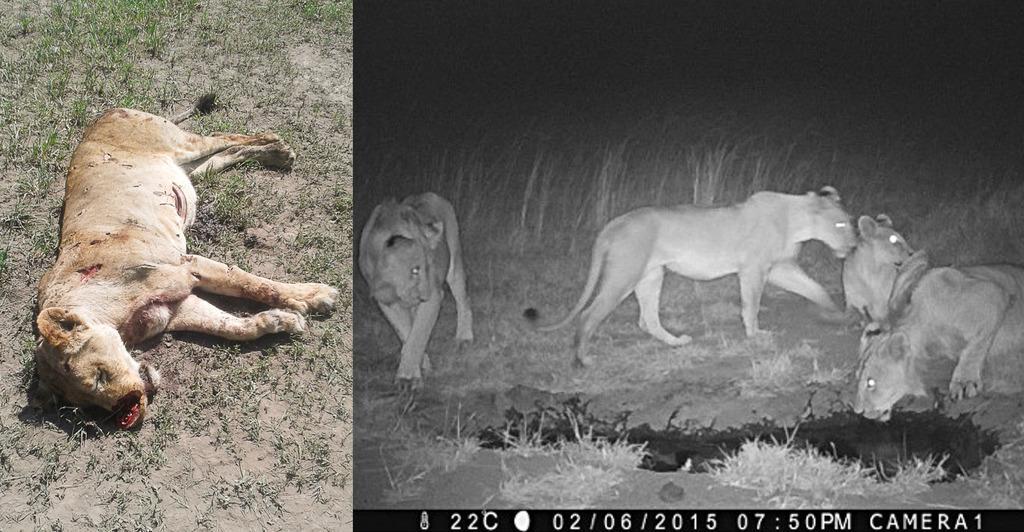
In stark terms, contrast and compare:
In the Enduimet Wildlife Management Area of Tanzania, 2 lions are dead this year already—speared after killing livestock—with an estimated 34 lions killed since 2009.
Meanwhile, just across the border in Kenya, under Big Life’s Predator Compensation program, NO lions have been killed this year by participating communities. Only two lions were killed in 2014, following three years of no deaths in communities covered by the program.
Unfortunately, lions don’t respect international borders, so some of those lions in Enduimet came from the protected Kenya side. Big Life, in partnership with the Honeyguide Foundation, funds anti-poaching operations in Enduimet, but there is no compensation program in place yet. Additional funding is needed for that.
These photos show the real life impact of the Kenyan compensation program. In 2013, we posted a photo sharing our excitement at the “coming out” of 4 new lion cubs. Earlier this year, we shared the photo on the right of the same 4 cubs, now teenagers.
Under our protection, these cubs have managed to defy all odds and survive those early years when mortality rates can be as high as 75%. This is particularly poignant, as it is a great example of the success of the predator compensation program we initiated 12 years ago, which has helped to bring the lions of the Amboseli ecosystem back from the brink of extinction.
Our solution makes perfect sense to livestock owners. If you can prove that a wild animal killed your livestock, Big Life will pay you a percentage of the value of that livestock. BUT, if a member of your community kills a predator, then neither you nor anyone in your community gets paid for a two-month period. It’s an agreement that keeps livestock owners happy, and lions alive.
Africa’s predators have a rough ride ahead, and conservation interventions need to somehow balance the costs that local people incur through living with these animals. The Big Life compensation program has proven to be a very successful way of doing that, and the results are clear.
However, as illustrated in Tanzania, we desperately need to expand our compensation program to protect predators as they move into neighbouring areas, as well as continue to fund the protection of lions in Amboseli.
You can help to keep lions and other predators alive, please take the time to donate to the Predator Compensation Fund at www.biglife.org/donations.
